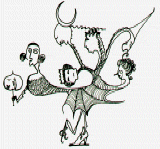Jewelry
boxes and cabinets

Request
current list of available Jewelry boxes.
writing-boxes
jewelry-boxes
tea caddies
sewing-boxes
contents
| |
\
Antique Brass edged box with two
liftout trays and Chubb lock Circa 1840.
Please click on images to enlarge | slide show | thumbnail index |
Reference: JB187
Description:
A brass edged rosewood box having two velvet lined liftout trays of
rosewood construction and document wallet with high security Chubb
detector lock.
The box is beautifully constructed in highly figured rosewood having
solid rounded brass edgings and inset handles.
The ruched and plain
velvet are all original.
Origin: UK.
Circa: 1840
Materials: Rosewood,
brass
Size: 31.5cm wide by 21.4cm by 14.5 cm: 12.4 inches wide by
8.4 inches
by 5.7 inches.
Condition: Good over all.
working lock with keys (2).
|

|

|
The box has two velvet lined
liftout trays of rosewood construction and document wallet in the lid.
The boxis fitted with
high security Chubb detector lock.
|
Please click on images to enlarge | slide show | thumbnail index |

|
Detail of the rounded brass
edging which contrasts with the rosewood and acts as a protection to the
edges.
|
Please click on images to enlarge | slide show | thumbnail index |

|
There is a document wallet in the lid.
|
Please click on images to enlarge | slide show | thumbnail index |

|
|
The box has a Chubb
lock with the serial # 36233.
This indicates that the
lock was made 1838 - 1882 Horseley Fields, Wolverhampton (19801 -
899500)
The name of Chubb is famous in the lock world for the invention of the
detector lock and for the production of high quality lever locks of
outstanding security during a period of 140 years.
The detector lock, was patented in 1818 by
Jeremiah Chubb of Portsmouth, England, who gained the reward offered by
the Government for a lock which could not be opened by any but its own
key.

This box comes with two keys which are elegantly
small.
|

It is recorded that, after the appearance of this
detector lock, a convict on board one of the prison ships at Portsmouth
Dockyard, who was by profession a lockmaker, and had been employed in
London in making and repairing locks, asserted that he had picked with
ease some of the best locks, and that he could pick Chubb's lock with
equal facility.
One of these was given to the convict together with
all the tools which he stated to be necessary, as well as blank keys
fitted to the drill pin of the lock and a lock made on exactly the same
principle, so that he might make himself master of the construction.
Promises of a reward of £100 from Mr Chubb, and a free pardon by the
Government were made to him in the event of his success. After trying
for two or three months to pick the lock, during which time he repeated
overlifted the detector, which was as often undetected or readjusted for
his subsequent attempts, he gave up, saying that
Chubb's were the most secure locks he had ever met
with, and that it was impossible for any man to pick or to open them
with false instruments. Improvements in the lock were subsequently made
under various patents by Jeremiah Chubb and his brother Charles.
See: www.chubblocks.co.uk/historyoflocks.html
www.chubbarchive.co.uk
/
http://www.antique-locks.com/
|
Please click on images to enlarge | slide show | thumbnail index |

|
The Rosewood facings are
inlaid with brass. The velvet lined rosewood liftout trays have beading
run into the top surface.
|
There is an armorial hawk engraved in the brass
plate in the top.
|

|
Please click on images to enlarge | slide show | thumbnail index |
Please click on images to enlarge | slide show | thumbnail index |
Please click on images to enlarge
All text and images and linked images are ©
1999-2007 Antigone Clarke and Joseph O'Kelly. If you require any further
information on permitted use, or a licence to republish any material, email us
at copyright@hygra.com
|
